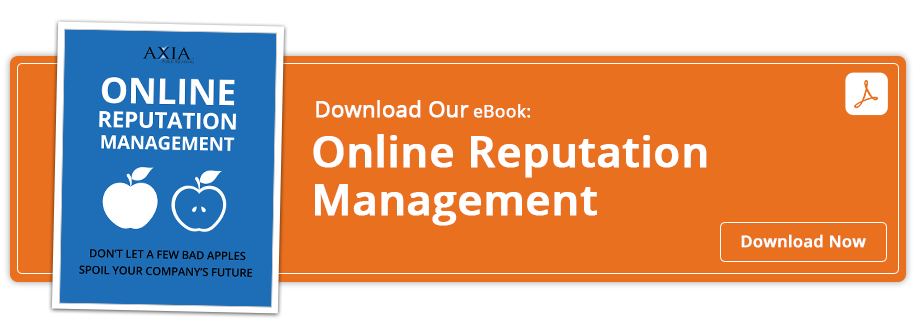 Many companies search for themselves online to ensure they’re ranking well on search engines. In reviewing your company’s positioning in search engine results, you may find that you have an online reputation problem. If there is negative content about your company ranking relatively highly, you’re almost certainly losing business because of it.
Many companies search for themselves online to ensure they’re ranking well on search engines. In reviewing your company’s positioning in search engine results, you may find that you have an online reputation problem. If there is negative content about your company ranking relatively highly, you’re almost certainly losing business because of it.
Search engine results vary based on your search history, your past search behavior and the data center serving up the search results. To that end, we created a list of five steps to help you monitor your company’s online reputation management progress:
- Clear your history.
Clear your browsing history, your cache and cookies; otherwise, search engines may see that you previously visited your site, which will color your returns. It’s good to clear these regularly anyway as this data is one way companies target their marketing to you.
- Enter incognito mode.
Open a new browser window in incognito mode or privacy mode. It’s important to always search in one of these modes. If you aren’t in privacy mode, the search engine will use unique identifiers and other variables like your search history, location, IP address, etc. to predict and provide customized results it thinks you want to see instead of natural results.
- Search.
Search your company’s full name as well as the name people typically use to refer to your company (usually a shortened or colloquial version of your official name). Don’t forget to also search for any company executive names that could turn up results. Don’t use quotation marks in your search: Most consumers don’t use them around your company name when they search and you want to see the same results they see. Google is consumers’ most commonly used search engine.
- Save a PDF.
Create a PDF copy of the first four pages of your search results. Do this with your results from all search engines to create a baseline. Be sure to date them for reference. We recommend using GoFullPage, a Google Chrome browser extension.
- Note the negatives.
Internally, determine who will document any negatives on sites like PissedConsumer, RipoffReport, and similar sites. That individual should click on the negative return once, create a PDF of the page for future reference and share the PDF with the team. (Again, we recommend using GoFullPage, a Google Chrome browser extension.) Then – and this is important – make sure your team never clicks on the link again. The more clicks and traffic those pages get, the higher they’ll rank for all searchers. Educate your staff about this. Make the PDFs available on your intranet, etc., and stop driving internal traffic to those pages. Your call center alone can generate hundreds of visits every week to these negative reviews as they address customer complaints that mention the reviews during their phone calls.
Fine-tune communication
When speaking with our clients, we use a formula to communicate and track search engine ranking placements. For example, Page 1 is labeled “1” and Page 2 is labeled “2.” Typically, there are 10 web pages delivered on a single search result.
If a particular web page appears as the second return on Page 1 of a Google search, we will describe it as being in position 1.02. Using this system internally at your company improves communication on the topic and ensures that every team member is rowing in the same direction.
Monitoring your progress is great; however, you might not see much change unless you’re actively utilizing an online reputation management campaign to push those negatives off of Page 1.
Download our online reputation management e-book to start your company on the right path. Call us today for an assessment of your company’s online reputation.
 Marjorie Comer is an award-winning PR professional. She graduated from Rockhurst University with a Bachelor of Arts in communication and loves to cheer for her hometown Kansas City Royals. Marjorie has worked for Axia Public Relations since October 2011. Follow her on Twitter @Marjorie_Comer. Learn more about Marjorie Comer.
Marjorie Comer is an award-winning PR professional. She graduated from Rockhurst University with a Bachelor of Arts in communication and loves to cheer for her hometown Kansas City Royals. Marjorie has worked for Axia Public Relations since October 2011. Follow her on Twitter @Marjorie_Comer. Learn more about Marjorie Comer.
Featured image credit: 123rf.com
Topics: public relations, ReviewMaxer, online reputation management



Comment on This Article